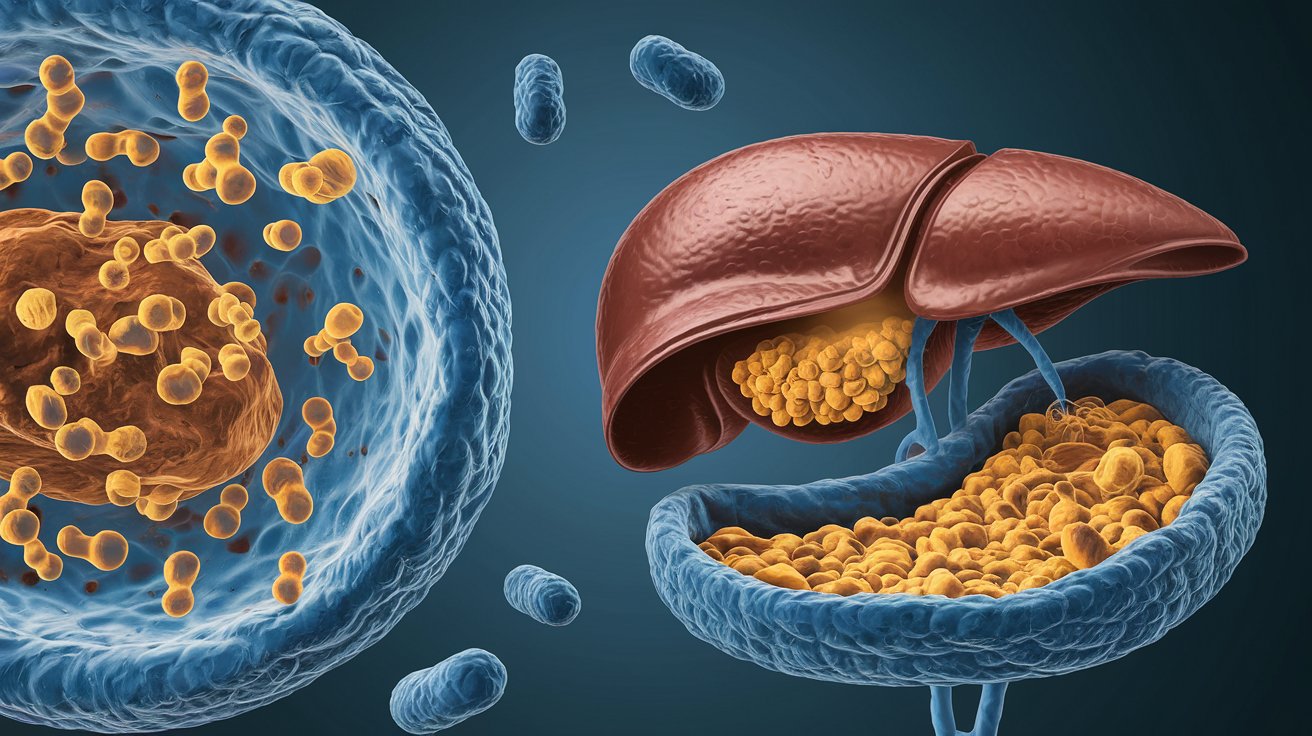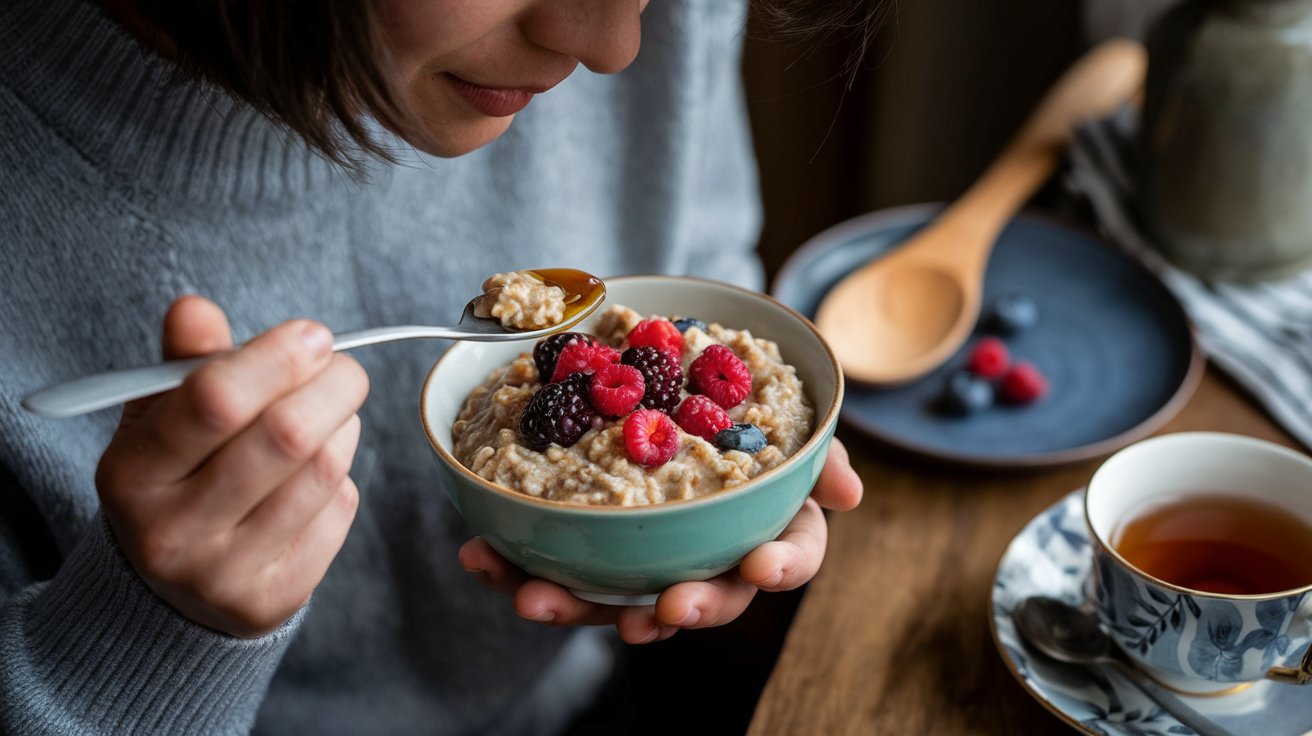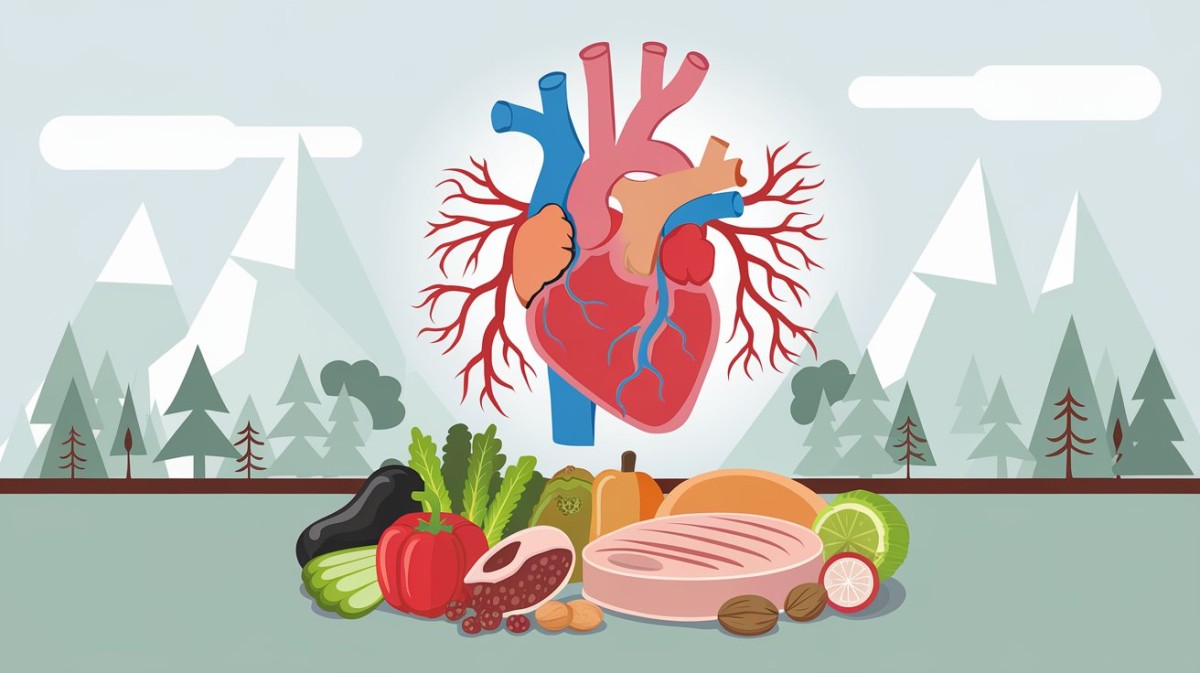Did you know that high cholesterol can be a major cause for heart diseases? High cholesterol can have a significant impact on your well-being. But don’t worry, you are not alone. Millions of people around the world are facing the same challenge.
However, high cholesterol can be managed with just the right diet. Let’s take a look at the dietary choices that can help lower your cholesterol and improve your heart health.
WHAT IS CHOLESTEROL?

Before getting into the necessary diet requirements, you need to have a clear idea about what cholesterol is and how it affects your body. Cholesterol is a fat-related substance; it is produced from the liver and present in lots of foods. It is essential for the proper functioning of the human body, the secretion of hormones, and is an important part of the cell membrane. However, a high concentration of Low-Density Lipoprotein (LDL) cholesterol that is classified as “bad” cholesterol can lead to the development of heart diseases and attacks.
KEY DIETARY CHANGES TO LOWER CHOLESTEROL
1. Choose Healthier Fats

One of the most vital recommendations on dietary changes requires the elimination of saturated fats and the use of some fats. Foods high in saturated fats include the red meat, full-fat dairy products and other processed foods increase the levels of LDL cholesterol. Thus, some measures which can be taken to control possible excessive intake of saturated fats include the following:
> Daily limits: Ensure that no more than 25-35% of your daily calories come from dietary fats, and less than 7% come from saturated fats. For example, if you consume 2000 calories per day, limit your saturated fat intake to 13gm.
> Healthier Alternatives: Shift to a diet comprising more unsaturated fats, such as lean meats, nuts, and vegetable oils like canola, olive and safflower oils. These fats help in lessening LDL cholesterol and improving heart health.
2. Limit foods with Cholesterol

While dietary cholesterol has a smaller impact on blood cholesterol levels compared to saturated fats, it is still important to be mindful of cholesterol intake. Here are some guidelines:
> Daily cholesterol intake: Limit dietary cholesterol to less than 200mg per day. Foods high in cholesterol include liver and other organ meats, egg yolks, shrimp, and whole milk dairy products.
> Balanced Consumption: At the same time, it should be understood that many of such foods, such as eggs, have low contents of saturated fats and can be consumed in moderation as a part of a healthy diet.
3. Increase Soluble Fibre

Soluble fibre has been identified to be one of the best and effective ways of reducing LDL cholesterol. It interferes with the absorption of bile salts in the intestines as well as facilitating the excretion of cholesterol from the body through the liver. Here are some high-fibre foods that you should include in your diet:
> Daily Fibre Intake: Aim for 10-25 grams of soluble fibre per day. Foods rich in soluble fibre include whole-grain cereals like oatmeal and oat bran, fruits such as apples and bananas, and legumes like kidney beans and lentils.
> Some high-fibre foods you should include in your meals:
- Oats: Starting your day with oatmeal or a cold oat-based cereal can provide 1-2gm of soluble fibre.
- Barley and other whole grains: Like oats, barley and other whole grains are excellent sources of soluble fibre.
- Beans: Beans are rich in soluble fibre and also help with weight management by keeping you full for longer.
- Vegetables: vegetables such as eggplant and okra are also good sources.
4. Incorporate Plant Stanols and Sterols

Plant stanols and sterols are substances that help block the absorption of cholesterol in the digestive tract.
> Daily intake - Aim for 2gm of plant stanol and sterol per day. These can be found in whole grains, nuts, legumes, and certain oils like olive oil and avocado oil. They are also found in certain types of orange juice, margarine, and bread.
5. Eat foods high in Omega-3 Fatty Acids

Omega-3 fatty acids are beneficial for heart health as they lower LDL and triglyceride levels, help control blood pressure, and reduce the risk of heart rhythm problems. Here are some sources of Omega-3 fatty acids:
> Fish: Tuna, salmon and mackerel fish are good examples of fatty fish that contain fatty acids. It’s advisable that you consume these fish at least twice in a week provided you avoid fish that has high mercury content especially if you are pregnant or breastfeeding.
> Plant sources: While plant sources like walnuts, flaxseed, chia seeds, and canola and soybean oils contain omega-3s, they have smaller amounts compared to fish.
ADDITIONAL DIETARY TIPS

> Limit salt intake: High sodium intake can increase blood pressure, which is a risk factor for heart diseases. Limit sodium intake to no more than 2300 mg (about 1 teaspoon of salt) per day. This includes all sodium from cooking, table use, and processed foods.
> Avoid Trans-Fats: Trans fats are harmful to heart health as they raise LDL cholesterol and lower High-Density Lipoprotein (HDL) cholesterol. Trans fats are often found in ready-to-eat, processed and fried foods. Avoid foods that contain partially hydrogenated oils, which are sources of trans fats.
> Increase fruits and vegetables: Fruits and vegetables are essential for a heart-healthy diet. They provide vitamins, fibre, and other nutrients that help lower cholesterol and improve overall health. Include a plethora of fruits and vegetables in your diet. Aim for a minimum of five servings a day.
CREATING A CHOLESTEROL-LOWERING DIET

Here’s how to create a balanced dietary portfolio to reduce cholesterol:
> Vegetarian focus: A largely vegetarian diet with plenty of fruits, vegetables, whole grains and plant-based proteins can significantly lower LDL cholesterol and triglycerides. Include foods like oats, barley, okra, eggplant and soy protein in your diet.
> Healthy Swaps: Make small swaps in your diet, such as using vegetable oils instead of butter or lard, and choosing nuts and seeds over processed snacks.
For further details, you can consult a dietitian personally as they can help you tailor a diet plan that suits your specific needs and calorie requirements.
You can check out more diet plans and tips according to your specific requirements at Diet Plans.
CONCLUSION
Lowering cholesterol through dietary changes is an effective and natural way to improve heart health. By choosing healthier fats and limiting harmful substances like saturated fats and trans fats, you can significantly reduce any chances of heart disease. Combining these dietary changes with regular exercise and other lifestyle changes can lead to a comprehensive approach to managing cholesterol levels.
Remember, small changes can add up over time. Start by making a few adjustments to your diet and lifestyle and gradually work towards a more balanced and heart-healthy routine. Consult with a healthcare provider or dietitian to create a personalised plan that suits your needs and helps you achieve your health goals.

